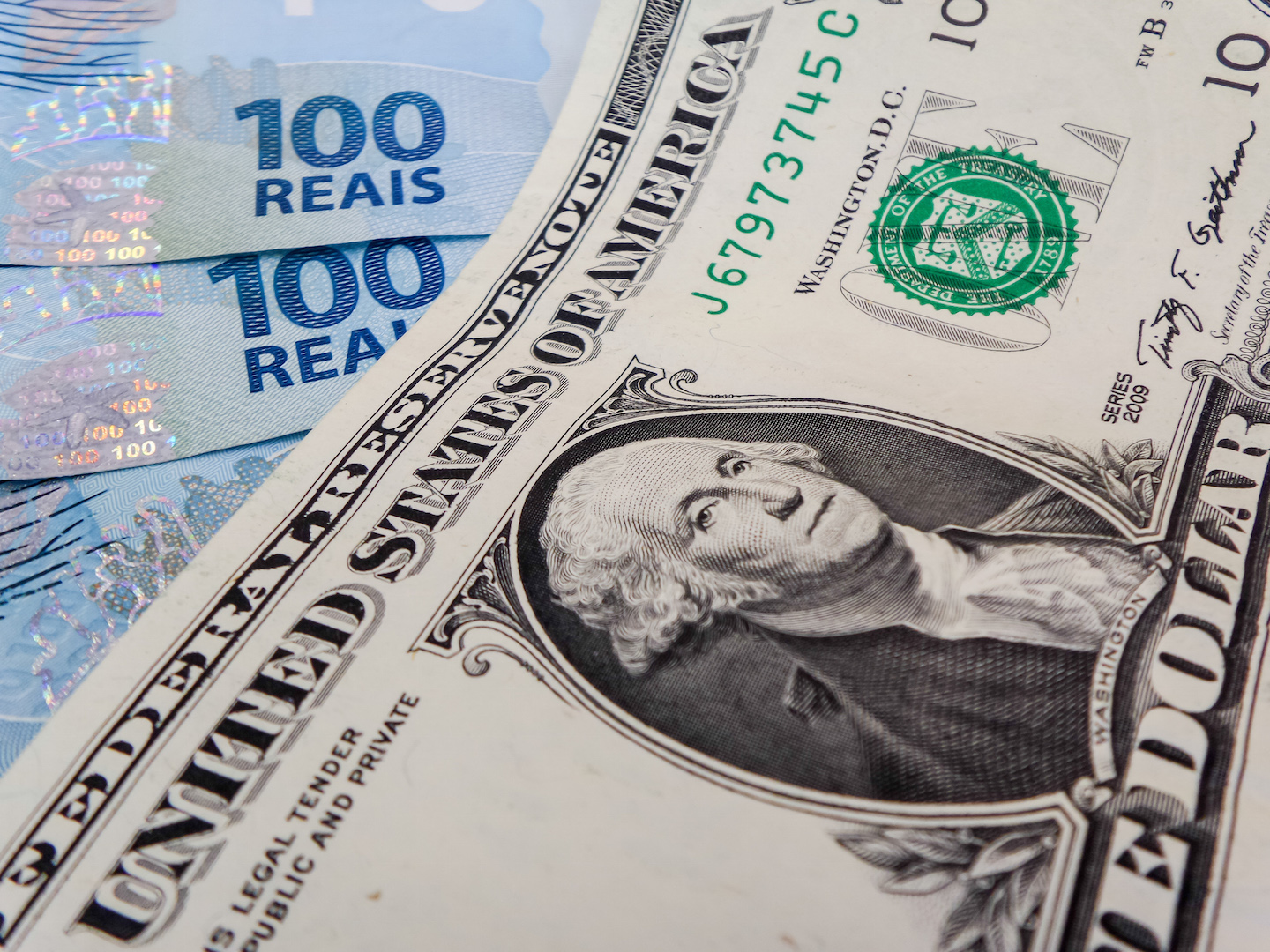RIO DE JANEIRO, BRAZIL – In a day of great fluctuation in the financial market, the dollar closed virtually stable, after rising nearly one percent during the session. The stock market declined 0.35 percent amid earnings when investors sell securities to cash in on profits from previous days.

The commercial dollar closed at R$5.157 on Tuesday, July 28th, with a drop of only R$0.001 (-0.02 percent). At the peak of the day, around 10:40 AM, the price hit R$5.205, but retreated in the following hours. The currency accumulates a high of 28.52 percent in 2020.
The US currency began to retreat after the General Register of Employment and Unemployment (CAGED) showed a slowdown in the pace of job losses with a signed worker’s record book in June compared to preceding months. Last month, there were 10,984 formal jobs closed, well below the figures for March (-259,917), April (-918,286) and May (-350,303).
The improvement in some recent indicators may prompt the Central Bank (BC) to refrain from cutting the SELIC rate (basic economic interest rate) by 0.25 percentage points during the Monetary Policy Committee (COPOM) meeting next week. The interruption of interest rate cuts hinders the flight of financial capital from the country. Currently, the SELIC rate stands at 2.25 percent per annum, its lowest level in history.
Also on Tuesday, the Central Bank announced that Brazil reported a US$2.2 billion surplus in June, the best result in history for the month. Foreign direct investments in the country totaled US$4.754 billion last month. These flows help offset the withdrawal of financial capital from the country in recent months, reducing pressure on the dollar.
The IBOVESPA, the main index of the B3 stock market), closed slightly down on Tuesday, with some hesitation in the stock markets abroad and with profit realization transactions. The indicator closed at 104,109 points, down 0.35 percent, after varying highs and lows throughout the day.
Trading around the new stimulus package for the US economy contributed to fluctuations in the financial market. Republican senators on Monday announced an additional US$1 trillion in aid to tackle the crisis triggered by the novel coronavirus pandemic.
The proposal prompted a reaction by the Democrats, who considered it timid when compared to the US$3 trillion proposal passed in the House of Representatives in May, and by a number of Republicans, who considered it too expensive.
The stalemate interfered with the US markets. The Dow Jones index of the New York Stock Exchange closed this Tuesday with a 0.77 percent decline. The undermined American consumer confidence, according to indicators released yesterday, also weighed on the negotiations.
Source: Agência Brasil

